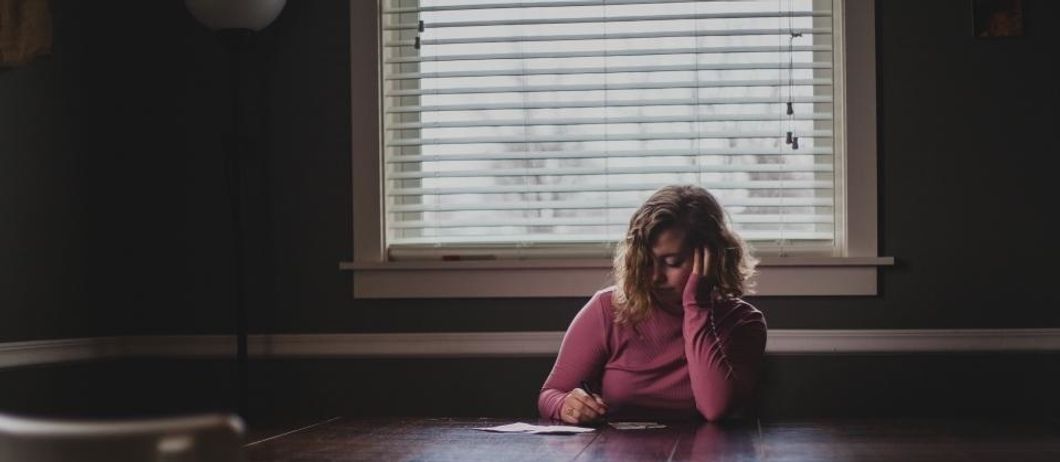Recently, I've been confronted with the overwhelming amount of times that I say "sorry" on a daily basis, often when there's nothing that I should be apologizing for. If someone expresses to me that they're sick, my initial response is "Aw man, I'm so sorry," rather than "I hope you feel better." I've begun to call this the "sorry reflex," as it sometimes so visceral that I don't even notice it happening. My sorry reflex has gotten to the point where if I accidentally bump into an inanimate object, like a chair, I immediately say "I'm sorry."
I've begun to notice times when the other women in my life do this as well. Last week, when I complained to my roommate about having lost my umbrella in the midst of an especially rainy week, she sympathized by saying "I'm sorry about that." Now, this garnered an immediate reaction from me, one of which felt most closely like guilt. I felt guilty for making a friend feel at fault for something that I had done. Very quickly, I replied, "It's not your fault." Now, I'm very sure that my roommate was consciously aware she was not the one who had lost my umbrella, but in using the word "sorry," she unintentionally admitted guilt.
This conversation got me thinking about how women are conditioned to be apologetic. While boys receive applause for being overtly confident and assertive, girls are told that timidity and inferiority best suit their character. We girls are trained that to empathize; we must first sympathize. This is to say that in identifying with the upsetting experiences of others, like losing an umbrella, we must also be responsible for the things that cause them grief. Why should anyone feel sorry that I lost my umbrella? The answer is – they shouldn't.
The word "sorry" can be said so much that it loses it genuine remorse and becomes more of an instinctual response, even when no guilt is actually felt. After telling my roommate that losing my umbrella wasn't her fault, she expressed to me that she knew that fact but regarded the comfort and ease of expressing the word "sorry" to empathize. Our conversation about my umbrella made us think about alternative phrases to saying sorry, such as "I hope things turn up for you" or "That's unfortunate." These sentences realistically convey our point – that we understand the crappy outcome and hope things get better – all without admitting guilt. It's fair to say that eliminating "sorry" from your toolbelt of responses is far more tedious and inconvenient than the resulting phrases, but it will change the way your responses are perceived by others, for the better. And that's something you don't need to apologize about, ever.






 The minimum wage is not a living wage.
StableDiffusion
The minimum wage is not a living wage.
StableDiffusion
 influential nations
StableDiffusion
influential nations
StableDiffusion












